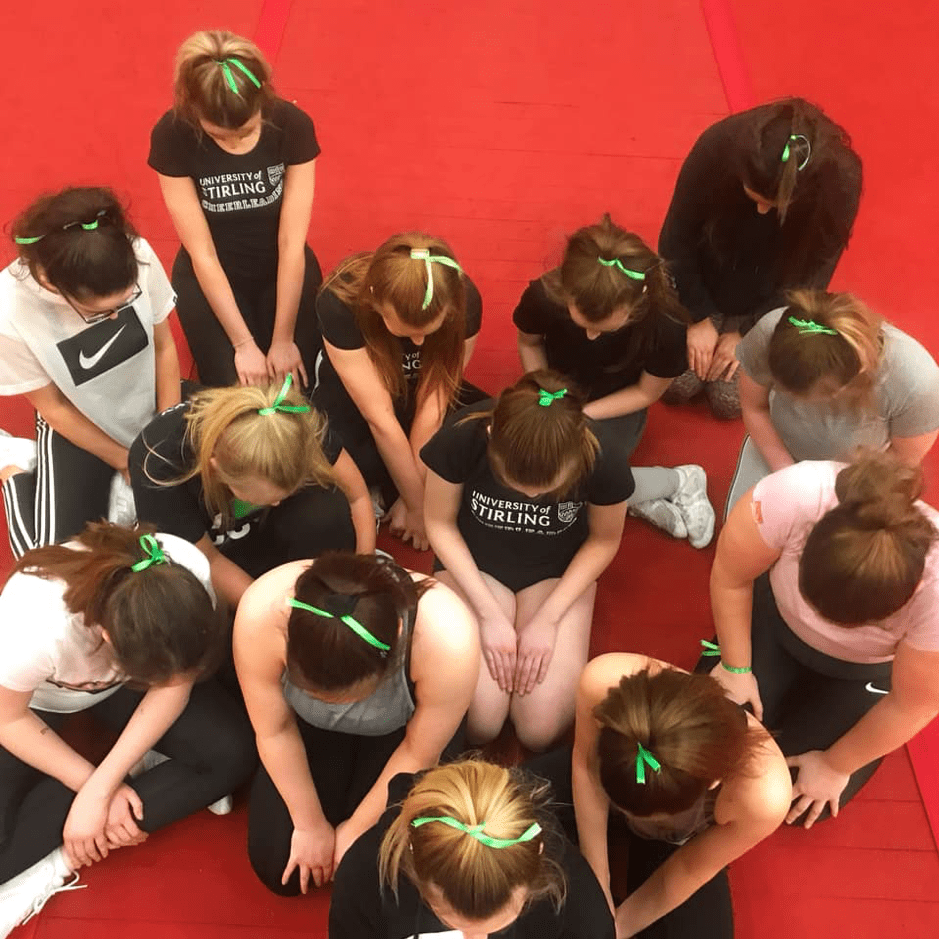By Natasha Cameron
Cheerleading is a popular sport that originates from America and has grown to be a common team sport across Scottish Universities.
After a long battle and hardship for the sport, it has been officially recognised within Scottish Student Sport, SSS, which means that it’s going to start receiving funding which it previously didn’t.
Cheer at Stirling University and indeed at other institutions has not received the same level of funding that other teams have, as it is not recognised as a British Universities & Colleges Sport. (BUCS)
BUCS are the ‘national governing body for Higher Education sport in the UK’ and have partners who can help University sports teams around the world with their training and competitions.
As well as not being on the traditional side of British sport, there are many misconceptions when it comes to cheerleading.
“I think one of the biggest assumptions about cheer is that girls just normally stand there on the sides with pompoms basically not doing anything, just looking pretty in their uniform but the reality is that it’s actually a very very difficult sport,” says Emily Hutton, President of CSU for the season.
Misconceptions aside, part of the reason why the sport is overlooked is that it is newer than some of the more traditional British sports such as hockey and football.
That being said, cheerleading is one of the fastest growing sports in Britain, with over 10 Scottish Universities competing annually in various competitions, such as the Scottish University Cheerleading Championships.
The reality is that cheerleading is a dangerous sport that requires hours of practice and skill with dance, gymnastics and stunting being key aspects of what it takes to build a performance.
At Stirling University’s team alone, CSU has four individual teams, Level 2 Cheer, Level 1 Cheer, Pom and Lyrical. Although CSU is one large team as a whole, the division of the skill sets means that everyone can enhance their skills and technique in their chosen area.
“You can be an absolute beginner to join Cheer, most of the girls on our team have never done it before…we do start from the basics, we teach everyone weekly and they develop skills to be able to be on the team,” said Emily.
With the amount of danger involved, from pulled muscles to fractured shoulders, it’s unsurprising that the insurance to be able to train within the Universities walls is expensive.
However, from the dedication that it requires to take part in the sport, it is surprising to learn that adequate funding isn’t immediately available from the University to help the cheerleader’s source equipment and cover travel expenses.
This year, which marked the third year in a row that the Championships have taken place, it was announced that cheerleading would be receiving SSS Sports funding.
This particular funding is higher education specific with the aim of encouraging more people to get involved with Sports. Since this funding has become newly available to Cheer, the girls at CSU have had to pay their own way and fundraise to do the sport they love.
Tesco and Morrison bag-packing, Bingo Night as well as acting as promoters for the local night club Dusk, is just a few ways Cheer has raised money before.
CSU is also an active part of the wider community and fundraise for different charities outside of the University, such as the Terrence Higgins Trust and various social movements.
 Some of this season’s Cheerleader’s fundraising for the Green Ribbon Campaign. – Source: CSU: Stirling University Cheerleading Squad Facebook page
Some of this season’s Cheerleader’s fundraising for the Green Ribbon Campaign. – Source: CSU: Stirling University Cheerleading Squad Facebook page
However, from receiving the news of being recipients of SSS funding, the girls at CSU, and arguably across other University cheer teams, are excited by the new opportunities and equipment that they can obtain now.
The fact that Cheer is being recognised for the dedication and skill it takes, is exciting and means that societal progression for cheerleading across the country is taking place. It is a time of huge positive change for cheerleading in Scotland and the UK as a whole.

